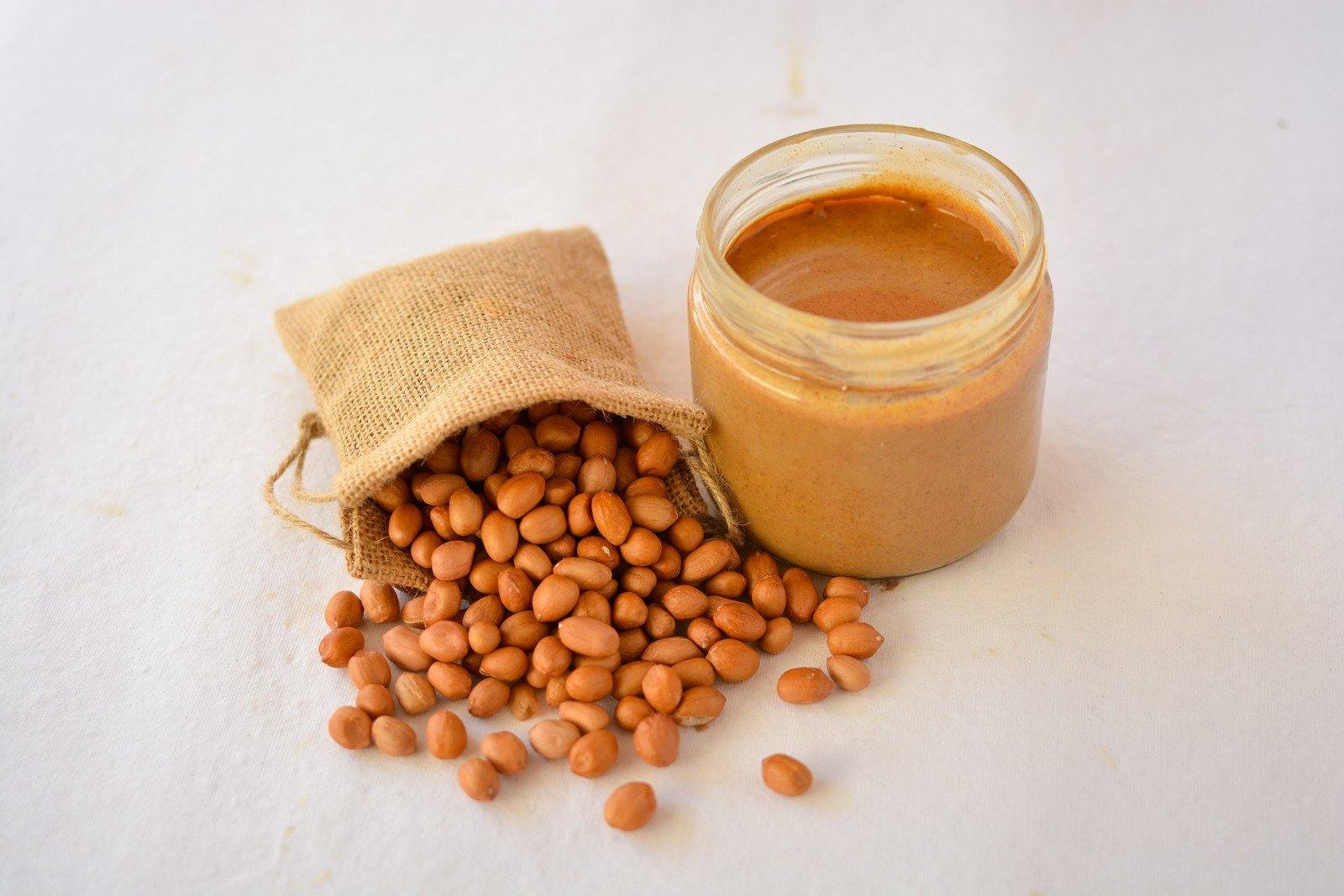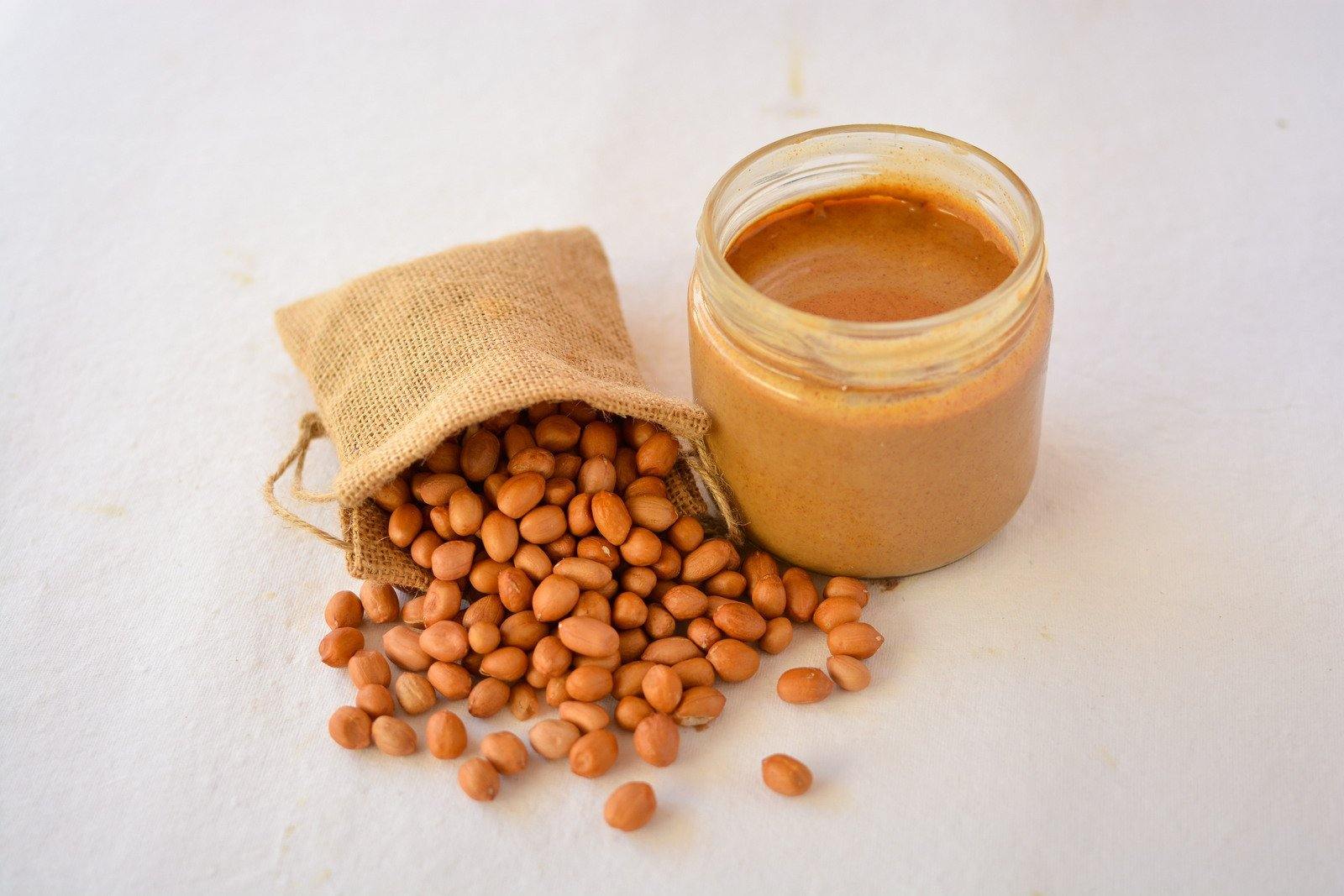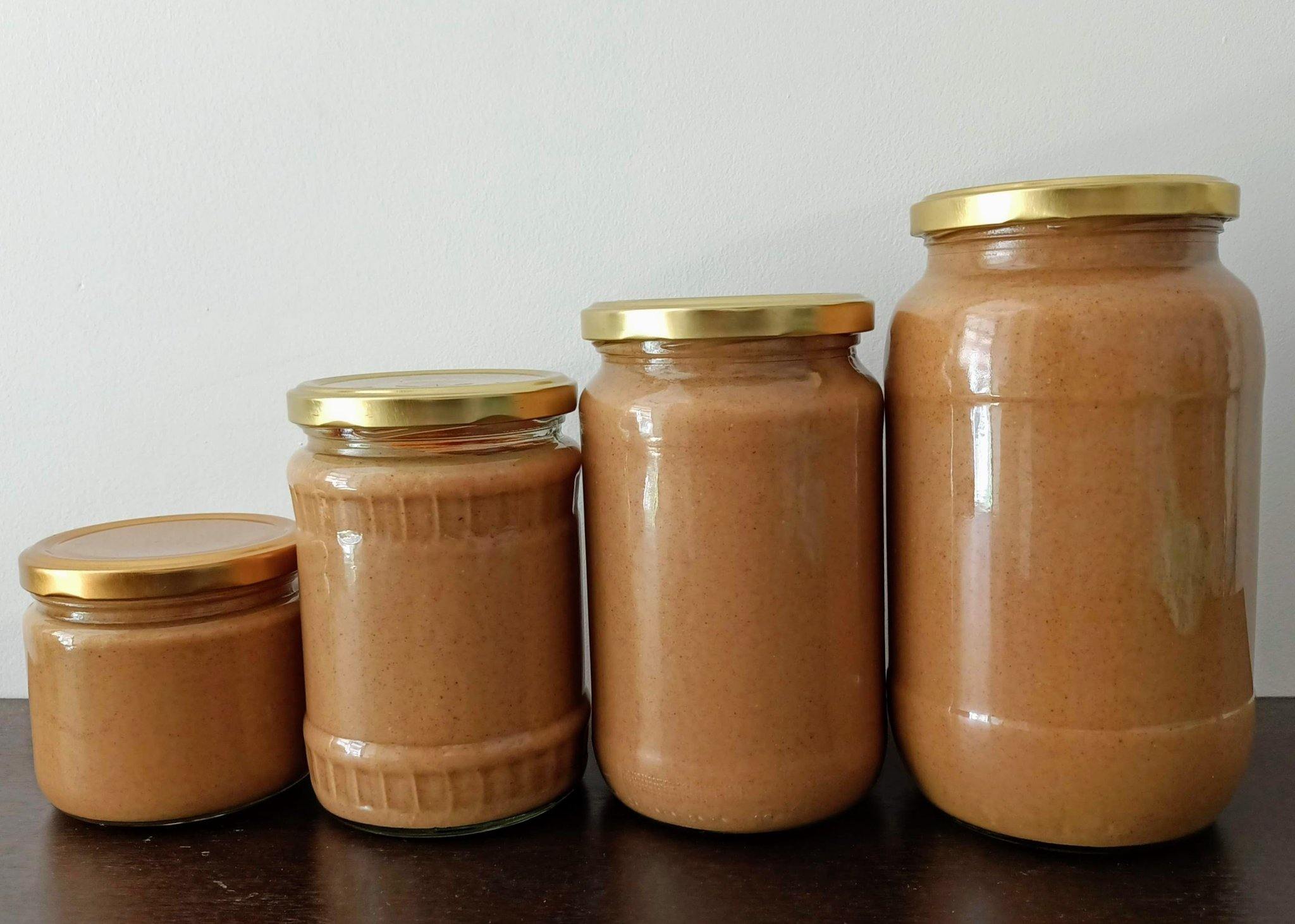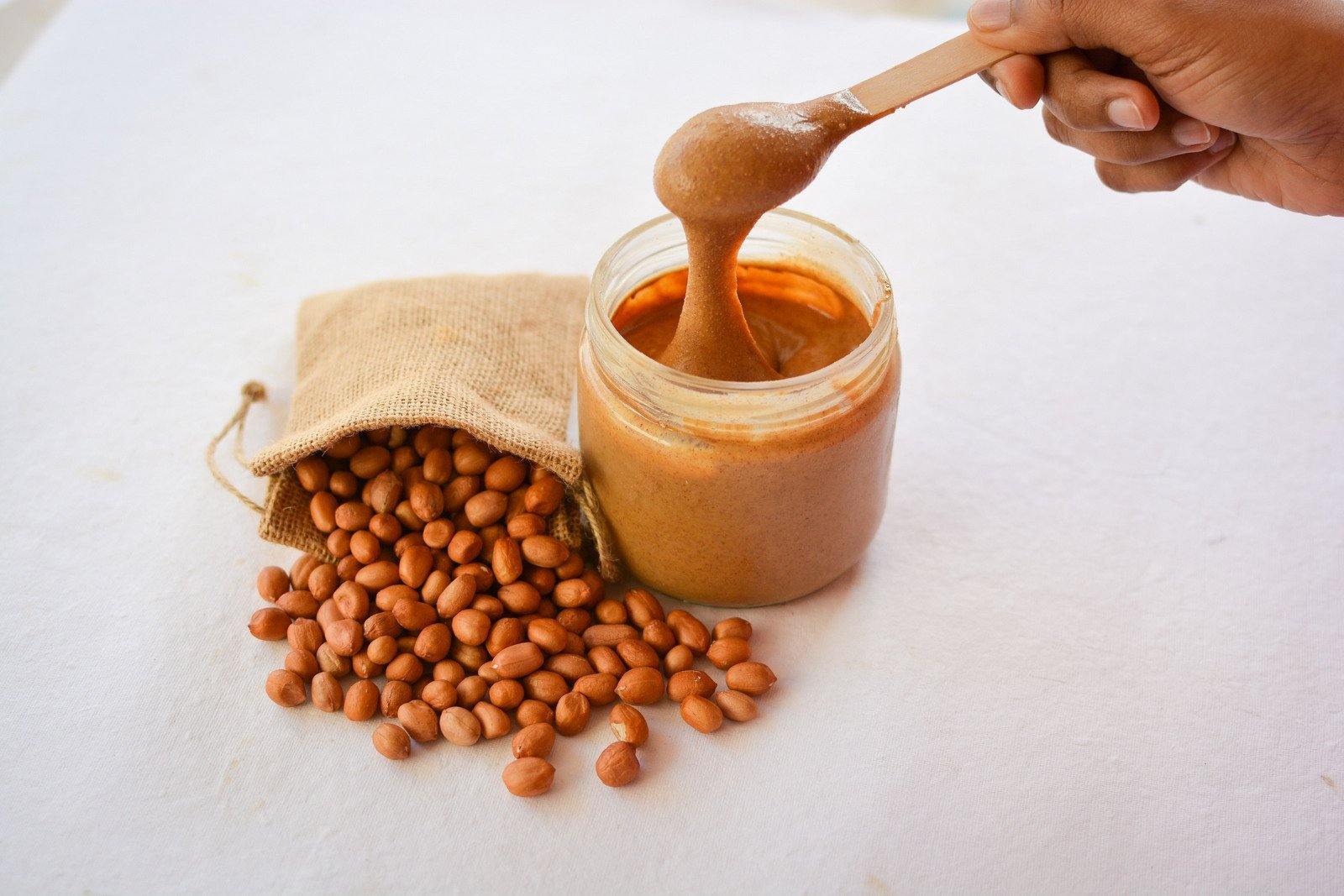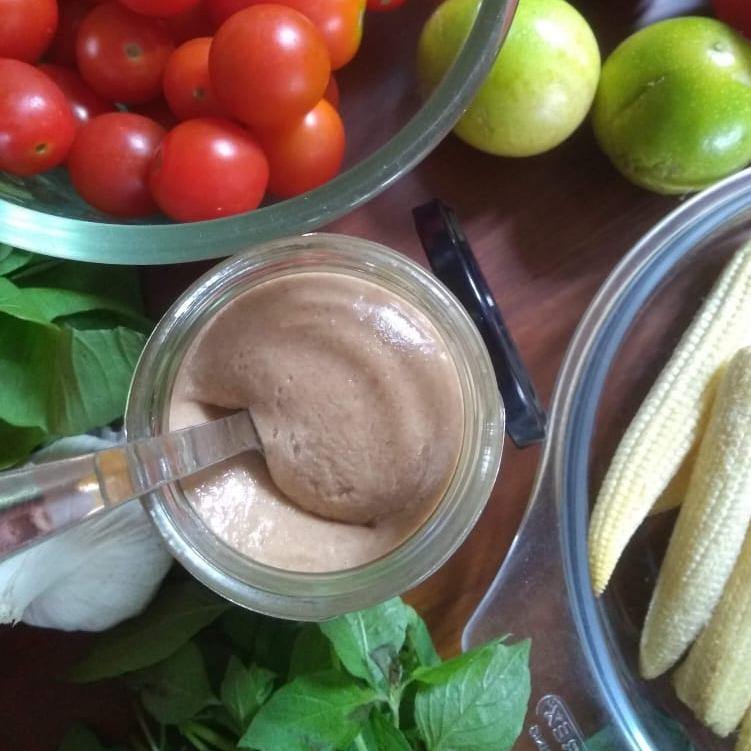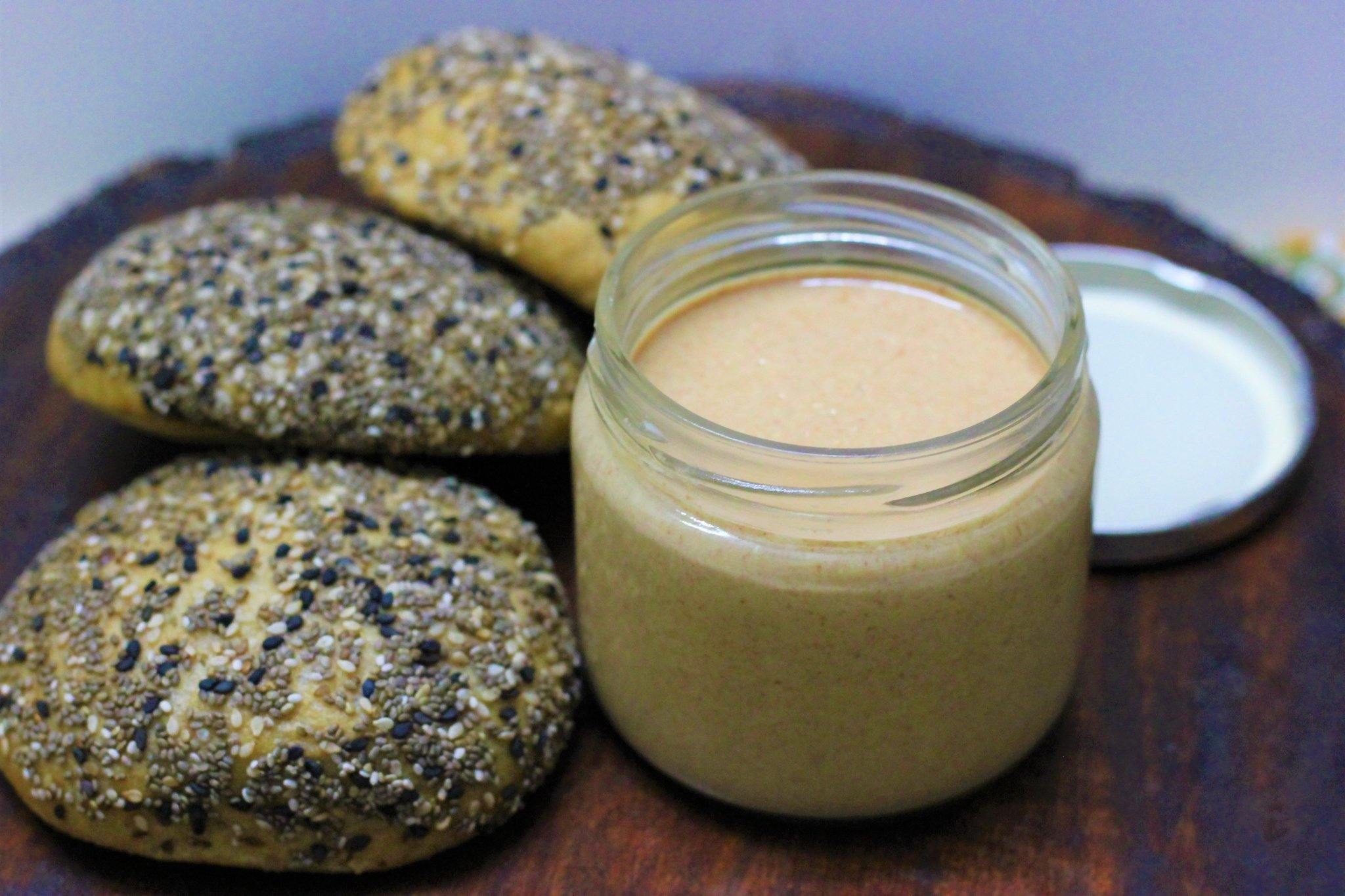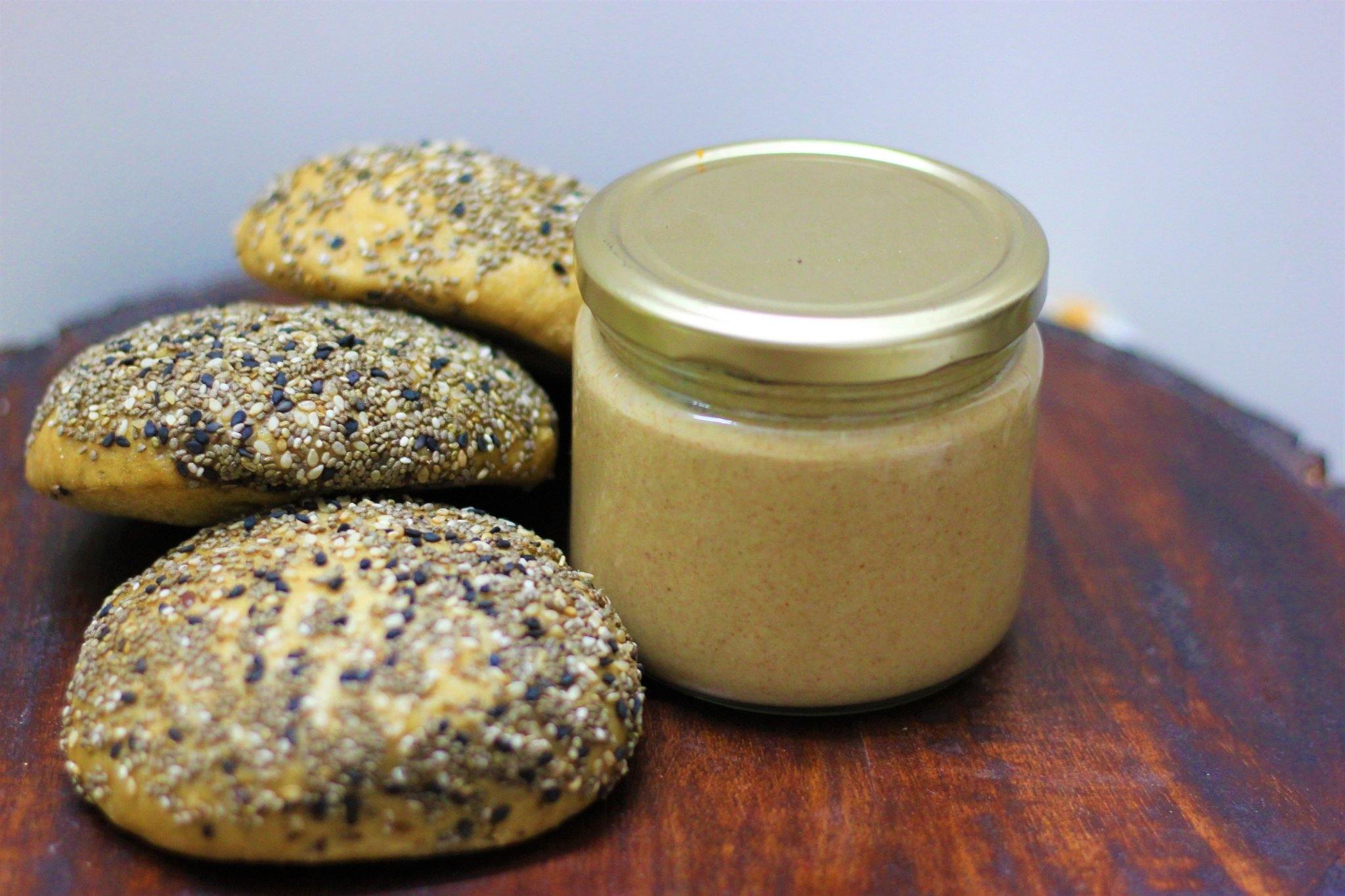Is sugar free peanut butter healthy?
Yes. There are great health benefits of eating sugar free peanut butter.
1. Protein:
Sugar free Peanut butter contains 7.02 grams (g) of protein per 2 tbsp serving. This counts toward the recommended dietary allowances (RDA) of
0.8g protein per kg body weight for Indians.
2. Magnesium:
With 57 milligrams (mg) of magnesium, each serving helps towards the
RDA of 400–420 mg in men and 310–320 in women. Magnesium is essential for health, playing a role in over 300 chemical processes in the body.
3. Phosphorous:
Each serving contains 107 mg of phosphorus, which is about 15.3 percent of the RDA of 700 mg for adults. Phosphorus helps the body to build healthy cells and bones and helps cells to produce energy.
4. Zinc:
A serving of peanut butter provides 0.85 mg of zinc. This is 7.7 percent of the recommended daily intake of 11 mg for men, and 10.6 percent of the RDA of 8 mg for women. Zinc is necessary for immunity, protein synthesis, and DNA formation.
5. Niacin:
Peanut butter contains 4.21 mg of niacin per serving, which makes a useful contribution towards a person’s recommended intake of 14 to 16 mg. Niacin benefits digestion and nerve function and helps produce energy.
6. Vitamin B-6:
With 0.17 g of vitamin B-6 per serving, peanut butter provides almost 14 percent of an adult’s RDA of 1.3 mg. Vitamin B-6 plays a role in over 100 enzyme reactions in the body and may be necessary for heart and immune system health.
7. Weight loss:
Several studies suggest that eating sugar free peanut butter can help you maintain your weight, or even help with weight loss.
This may be because of a number of reasons. Peanuts improve satiety, which is the feeling of fullness, thanks to their protein, fat, and fiber content. Peanut butter is one of the top ten foods high in arginine content. Arginine is a amino acid that helps
boost fat burning in the body. This may in turn help in
reducing risk of heart disease too.
It works like this - of all the calories you eat from nuts, about
70% seem to disappear through 'dietary compensation mechanisms' - increased satiety, reduced hunger - 10% are flushed away in stools, and
20% is lost with faster fat burn, leaving you with no extra calories to put on weight!
A
2018 study followed 373,000 people from 10 European countries for 5 years and found that eating nuts, including peanuts, reduces a person’s risk of being overweight or obese. Although nuts are calorie dense, there are several biological mechanisms that seem to prevent weight gain on eating peanuts and peanut butter.
8. Boosting heart health:
Sugar free peanut butter contains many nutrients that can improve heart health, including:
- monounsaturated fatty acids (MUFAs)
- polyunsaturated fatty acids (PUFAs)
- niacin
- magnesium
- vitamin E
The proportion of unsaturated fats (PUFAs and MUFAs) to saturated fats in the diet plays a particularly important role in heart health. Sugar free peanut butter is known as a heart-healthy option.
A healthy intake of nuts may have links to a reduced risk of mortality from heart disease or other causes. The researchers recommend peanuts in particular as a cost-effective way to improve heart health for some people.
Research conducted by Harvard in 2009 found that women at high risk for heart disease eating peanut butter daily had only half the risk of suffering from a heart attack compared to women who avoided peanut butter.
9. Body Building:
Many bodybuilders and fitness enthusiasts include sugar free peanut butter in their diets for various reasons.
Thanks to its high-calorie content, peanut butter is an easy way to increase calorie and unsaturated fat intake.
Nut butter is also a source of plant-based protein, which is essential for building and repairing muscles. Sugar free peanut butter counts toward a person’s daily protein intake.
Spreading sugar free peanut butter on whole-grain bread makes a great combination!
10. Managing blood sugar levels:
Sugar free Peanut butter is a slows down digestion and sugar absorption, owing to its fiber and fat content.
These characteristics mean that peanut butter, with no added sugar, does not have a significant impact on blood glucose levels. This means it can be a good option for those with diabetes.
The ADA recommend that people replace saturated fats with monounsaturated fats in their diets. They suggest sugar free peanut as a good source of monounsaturated fat.
A small
2013 study suggests that eating sugar free peanut butter or peanuts for breakfast could help women with obesity and an increased risk of type 2 diabetes to manage their blood glucose levels. Sugar-free peanut butter seems to boost gut satiety hormone secretion and reduce hunger. Adding nuts to your breakfast could give you lower blood sugar and less less hunger pangs later.
Sugar free peanut butter is a good source of magnesium, which is an essential nutrient for people with diabetes. Continuous periods of high blood sugar may reduce magnesium levels in the body. Low magnesium levels are linked to prediabetes and type 2 diabetes.
11. Reducing the risk of breast cancer:
Eating sugar free peanut butter, especially from a young age, may reduce the risk of breast cancer. This is because breast cancer takes decades to develop. So it is important to start eating healthy early.
The Harvard Nurses’ Health Study reports that eating sugar free peanut butter and nuts at any age may result in a lower risk of developing benign breast diseases, such as fibrocystic breast disease, fibroadenomas and noncancerous breast lumps. These are markers for increased breast cancer risk. Biopsies of these lesions could indicate anywhere from 30% to 1,300% increased risk of developing breast cancer.
Eating just two handfuls of nuts a week during high school was found to
reduce risk of potentially proliferative breast cancer by 36%.
Even those with a family history of breast cancer had a significantly lower risk if they ate sugar free peanut butter and these other foods.

